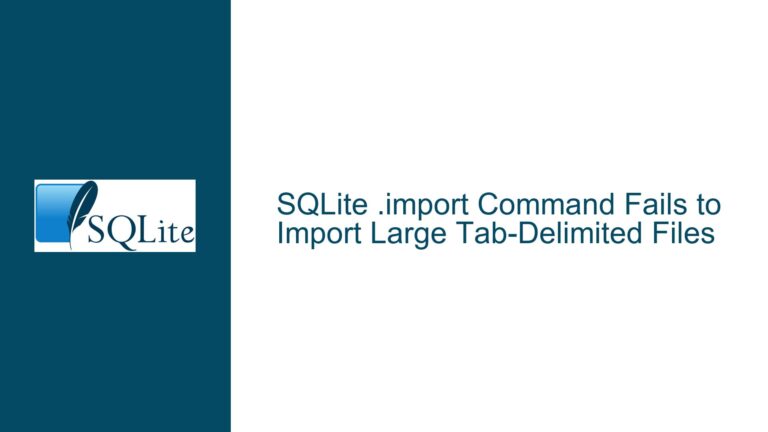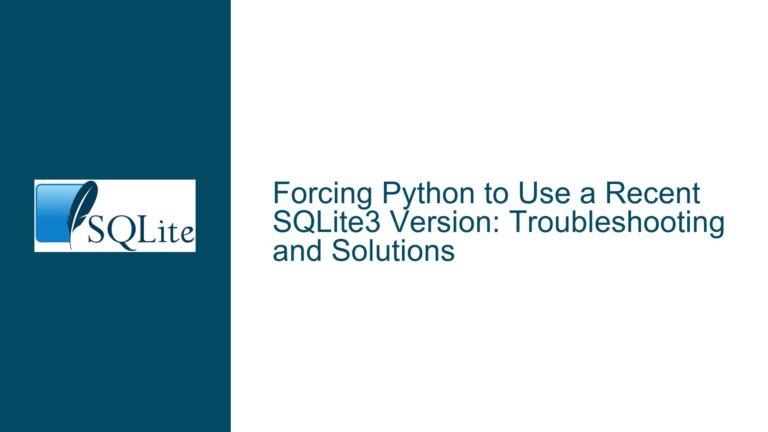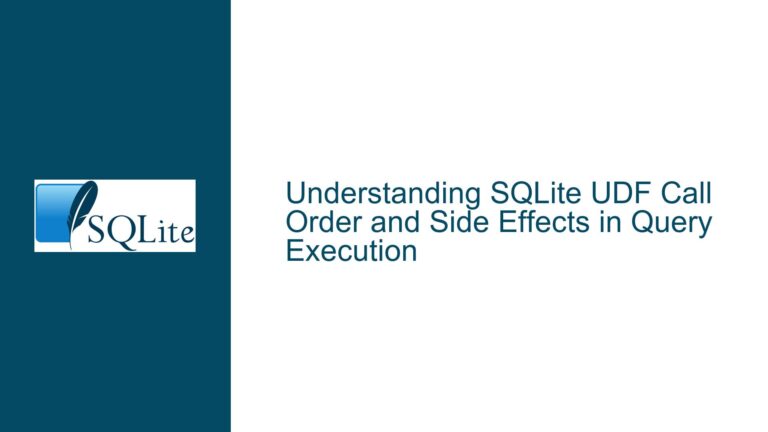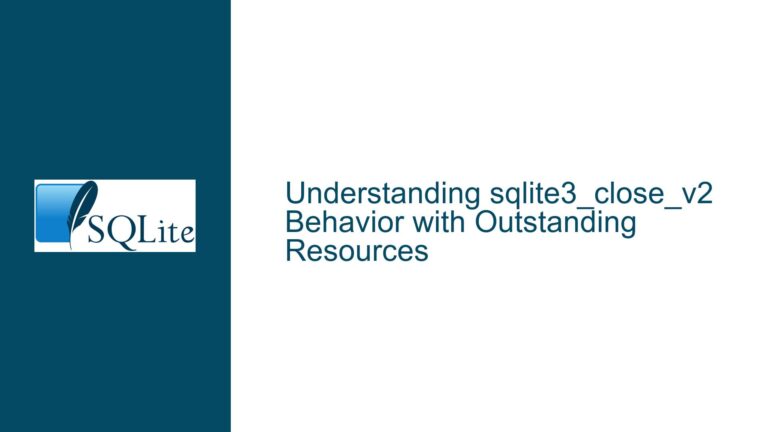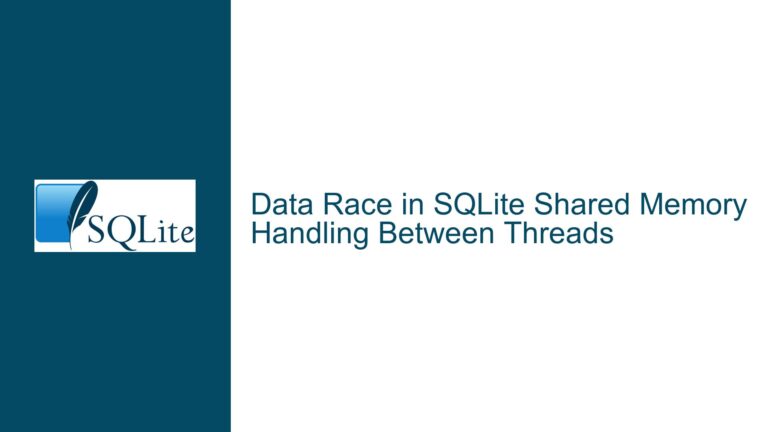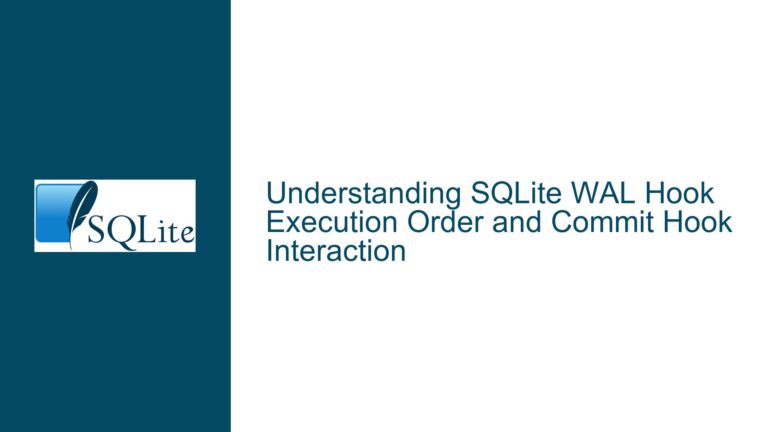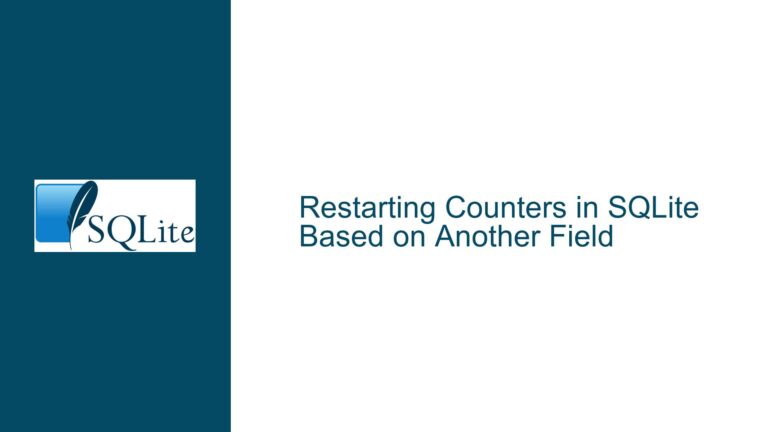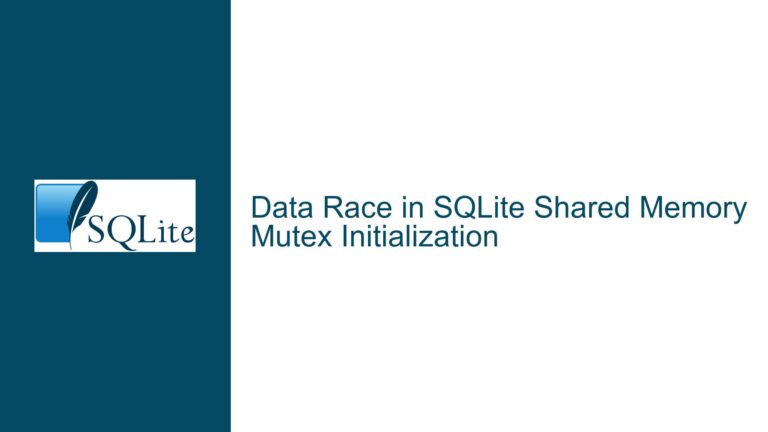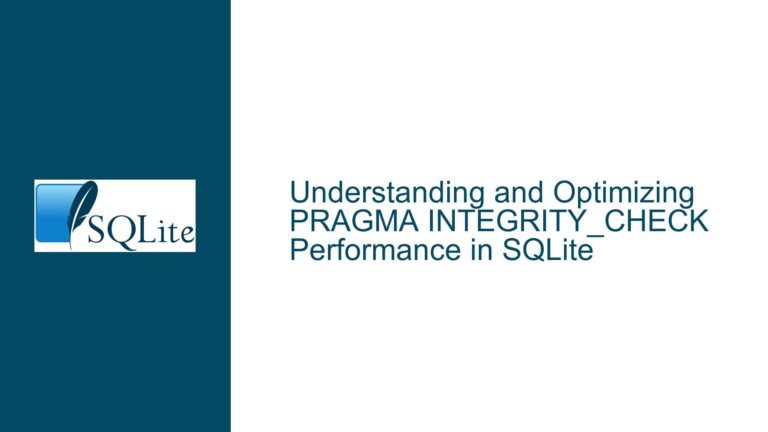SQLite .import Command Fails to Import Large Tab-Delimited Files
Incomplete Data Import with SQLite’s .import Command When attempting to import a large tab-delimited file into an SQLite database using the .import command, users may encounter a situation where only a subset of the rows is imported. This issue is particularly perplexing because the command executes without any explicit errors, yet the resulting table contains…
